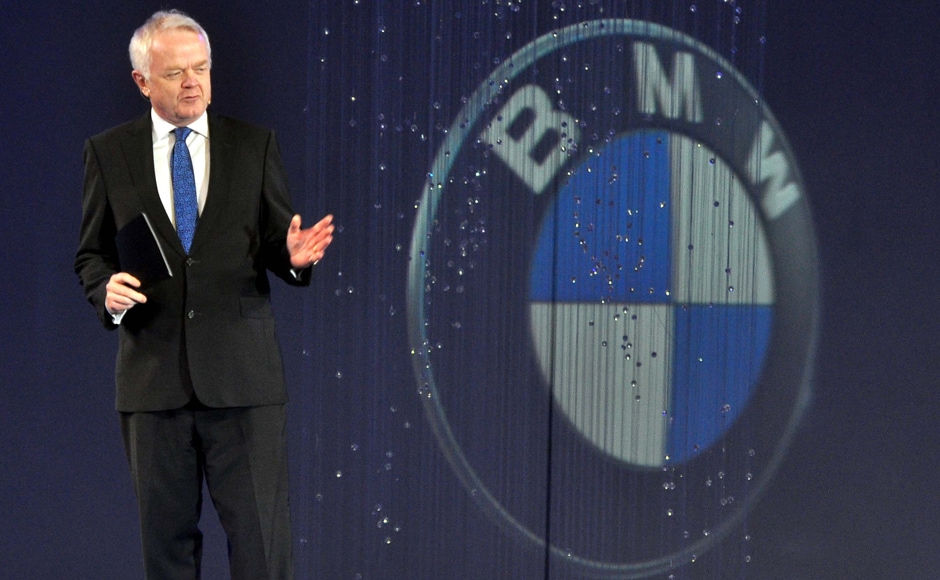The China Factor: How Market Shifts Affect BMW, Porsche, And Other Automakers

Table of Contents
Booming EV Market and its Influence on Luxury Brands
The China EV market is experiencing explosive growth, far outpacing many other regions. This presents both opportunities and challenges for luxury brands like BMW and Porsche. The shift towards electric vehicles is forcing these established players to dramatically alter their strategies.
- Increased investment in EV development and production in China: BMW and Porsche are heavily investing in local production and R&D to meet the surging demand for luxury EVs in China. This includes significant investments in battery technology and charging infrastructure.
- Competition from domestic Chinese EV brands: The rise of innovative and cost-competitive Chinese EV brands like NIO, Xpeng, and BYD is creating intense pressure. These domestic players often boast cutting-edge technology and strong localized marketing campaigns, directly challenging the dominance of established international brands.
- Adapting to stricter emission regulations in China: China's increasingly stringent emission standards are forcing automakers to accelerate their EV transition. Failure to comply results in significant penalties and reduced market access.
- Impact on pricing strategies and sales targets: The intense competition and the need for significant EV investments are affecting pricing strategies and sales targets for luxury brands. Profit margins may be squeezed as companies compete on price and features. The BMW iX and Porsche Taycan, for example, are crucial models in this fiercely contested market.
Shifting Consumer Preferences and Brand Loyalty in China
Chinese consumer preferences are evolving at a rapid pace. Factors beyond simply price are driving purchasing decisions, requiring luxury brands to adapt their marketing and product strategies.
- Demand for technologically advanced features: Chinese consumers, particularly younger buyers, highly value advanced technology features, including autonomous driving capabilities, sophisticated infotainment systems, and connectivity options.
- Importance of digital marketing and online sales channels: Online platforms and digital marketing are becoming increasingly critical in reaching and engaging Chinese consumers. Brands need a robust online presence and targeted digital strategies to succeed.
- Growing preference for domestically produced vehicles: National pride and a growing confidence in domestic brands are leading to an increased preference for vehicles manufactured within China. This is challenging the traditional dominance of imported luxury vehicles.
- Impact on marketing and sales strategies: Luxury automakers are adapting their marketing and sales strategies to resonate with evolving Chinese consumer preferences. This includes localization of marketing messages, emphasizing technological advancements, and strengthening after-sales service networks.
Government Policies and Regulations: A Key Driver of Change
China automotive policy plays a significant role in shaping the automotive landscape. Government regulations and incentives directly influence the strategies and profitability of automakers.
- Impact of carbon emission regulations: Stringent emission standards are pushing automakers towards electric and hybrid vehicles, impacting production plans and investment decisions.
- Government incentives for EV adoption: Subsidies and tax breaks for electric vehicles are accelerating the adoption rate, creating a favorable environment for EV manufacturers.
- Trade policies and import restrictions: Import tariffs and other trade policies can significantly impact the pricing and profitability of imported vehicles, influencing the competitiveness of foreign brands.
- Regulatory hurdles for foreign automakers: Navigating complex regulatory environments and obtaining necessary approvals can present challenges for foreign automakers operating in China. Understanding and complying with government regulations in China is crucial for success.
The Rise of Domestic Chinese Automakers and Increased Competition
The rise of domestic Chinese automakers like NIO, Xpeng, and BYD is transforming the competitive landscape. These brands are challenging established players with innovative technologies and competitive pricing.
- Technological advancements of Chinese car brands: Domestic brands are rapidly closing the technology gap, offering features comparable to, and in some cases exceeding, those of international competitors.
- Competitive pricing strategies of domestic brands: Domestic Chinese automakers often offer competitive pricing, appealing to price-sensitive consumers and putting pressure on luxury brands to adjust their pricing strategies.
- Impact on sales volume and market share for luxury brands: The increasing competitiveness of domestic brands is impacting sales volumes and market share for established luxury brands like BMW and Porsche.
- Strategic partnerships and joint ventures: To navigate this challenging environment, many international automakers are forming strategic partnerships and joint ventures with Chinese companies to access local expertise and market knowledge.
Conclusion: Understanding the China Factor for Future Success
The China factor is undeniably shaping the future of the global automotive industry. Understanding the dynamic nature of the Chinese automotive market, including the booming EV sector, evolving consumer preferences, and government policies, is no longer optional but essential for success. Adaptability, innovation, and a deep understanding of local preferences are critical for luxury brands like BMW and Porsche to maintain their market share and thrive in this rapidly evolving environment. To truly succeed, mastering the Chinese automotive market requires ongoing monitoring, strategic planning, and a willingness to adapt to the ever-changing landscape. To learn more about navigating the China factor and its implications for the future of the global automotive landscape, explore resources dedicated to automotive market analysis in China.

Featured Posts
-
 Svitolina Cruises Past Kalinskaya In First Round Of Dubai Tournament
Apr 27, 2025
Svitolina Cruises Past Kalinskaya In First Round Of Dubai Tournament
Apr 27, 2025 -
 Helmeyers Commitment The Future Of Blaugrana Glory
Apr 27, 2025
Helmeyers Commitment The Future Of Blaugrana Glory
Apr 27, 2025 -
 Pfc Halts Gensol Eo W Transfer Investigation Into Forged Documents
Apr 27, 2025
Pfc Halts Gensol Eo W Transfer Investigation Into Forged Documents
Apr 27, 2025 -
 Cannes Film Festival 2024 Juliette Binoche As Jury President
Apr 27, 2025
Cannes Film Festival 2024 Juliette Binoche As Jury President
Apr 27, 2025 -
 Ariana Biermanns Alaskan Adventure A Romantic Getaway
Apr 27, 2025
Ariana Biermanns Alaskan Adventure A Romantic Getaway
Apr 27, 2025
